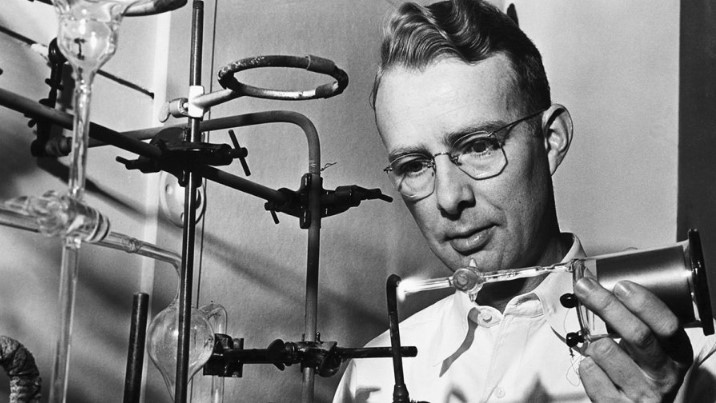
The Genius of Archimedes: A Comprehensive Analysis
Introduction
Archimedes of Syracuse, a luminary of ancient Greece, stands as one of the most influential mathematicians, physicists, engineers, and inventors in history. His work laid the groundwork for numerous scientific and engineering principles that continue to be essential in modern times. This article delves into the life, discoveries, and enduring legacy of Archimedes, aiming to provide an exhaustive overview of his contributions and their impact on contemporary science and technology.
Early Life and Education
Archimedes was born in 287 BC in the Greek city-state of Syracuse on the island of Sicily. He was the son of Phidias, an astronomer, which likely influenced his early interest in mathematics and science. Archimedes studied in Alexandria, Egypt, a hub of learning and culture during his time. There, he was exposed to the works of Euclid and other great scholars, which profoundly shaped his intellectual development.
Mathematical Contributions
The Principle of Buoyancy
One of Archimedes’ most famous discoveries is the principle of buoyancy, also known as Archimedes’ Principle. This principle states that an object submerged in a fluid experiences an upward force equal to the weight of the fluid displaced by the object. This discovery not only laid the foundation for hydrostatics but also revolutionized the field of fluid mechanics. Archimedes reportedly discovered this principle while taking a bath and famously exclaimed “Eureka!” upon realizing the solution to determining the purity of a gold crown for King Hiero II.
Archimedes’ Screw
The Archimedes’ screw is an ingenious device designed for raising water from lower to higher levels. Consisting of a helical surface surrounding a central cylindrical shaft, this mechanism is still used today in various applications, including irrigation, drainage, and even in modern machinery such as conveyors and turbines. The simplicity and efficiency of the Archimedes’ screw demonstrate his profound understanding of practical engineering.
Calculation of Pi
Archimedes made significant advancements in the calculation of pi (π), the ratio of a circle’s circumference to its diameter. By inscribing and circumscribing polygons around a circle, he was able to approximate the value of pi with remarkable accuracy. His method of exhaustion, a precursor to integral calculus, allowed him to establish bounds within which pi lies, demonstrating his innovative approach to solving complex mathematical problems.
The Quadrature of the Parabola
In his work “The Quadrature of the Parabola,” Archimedes proved that the area of a parabolic segment is 4/3 times the area of a certain inscribed triangle. This was achieved through the method of exhaustion, where he summed an infinite series of progressively smaller triangles. This work exemplifies his ability to rigorously prove geometric properties through logical reasoning and mathematical rigor.
Physics and Engineering Innovations
Levers and Pulleys
Archimedes’ studies on the mechanics of levers and pulleys are foundational to the field of statics. He formulated the law of the lever, stating that “Give me a place to stand, and I will move the Earth.” This principle explains how a small force, applied at a greater distance from the fulcrum, can balance a larger force applied closer to the fulcrum. His work on pulleys further enhanced the understanding of mechanical advantage, enabling the lifting of heavy objects with minimal effort.
The Archimedean Claw
Also known as the “Claw of Archimedes,” this weapon was designed to protect the city of Syracuse from naval attacks. It consisted of a crane-like arm equipped with a grappling hook that could lift enemy ships out of the water, capsizing them. This invention showcases Archimedes’ ingenuity in applying his scientific knowledge to practical and military challenges.
Heat Ray
Archimedes is often credited with creating a heat ray using a series of mirrors to focus sunlight onto enemy ships, causing them to catch fire. While the historical accuracy of this invention is debated, modern experiments have demonstrated its feasibility. This idea reflects Archimedes’ innovative thinking and his ability to harness natural phenomena for technological purposes.
Astronomical Contributions
Archimedes’ interest in astronomy led to significant contributions in understanding celestial bodies. He constructed models to explain the movements of the sun, moon, and planets, and he developed a planetarium that simulated the motions of the celestial spheres. His work in this field influenced later astronomers and laid the groundwork for the development of more sophisticated astronomical instruments.
Writings and Legacy
Archimedes authored numerous works, many of which have survived to this day. Some of his most notable writings include:
- On the Equilibrium of Planes
- On the Measurement of a Circle
- On Floating Bodies
- The Sand Reckoner
- On Spirals
These texts cover a wide range of topics, from geometry and number theory to physics and engineering. Archimedes’ ability to convey complex concepts with clarity and precision has ensured that his works remain relevant and studied by mathematicians and scientists throughout the centuries.
Impact on Modern Science and Technology
The contributions of Archimedes have had a lasting impact on numerous fields. His principles of buoyancy and hydrostatics are fundamental to modern fluid mechanics. The Archimedes’ screw continues to be used in various engineering applications. His methods for calculating pi and proving geometric theorems laid the groundwork for the development of calculus. Moreover, his innovations in mechanics have influenced the design of countless machines and tools.
Conclusion
Archimedes of Syracuse was a polymath whose work transcended the boundaries of mathematics, physics, engineering, and astronomy. His discoveries and inventions continue to influence modern science and technology, attesting to his enduring legacy. By exploring the life and achievements of Archimedes, we gain a deeper appreciation for the foundations of scientific knowledge and the remarkable ingenuity of one of history’s greatest minds.


